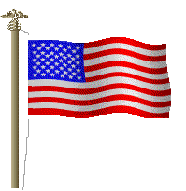|
What would the Fourth of July be without Mom's apple pie? Or without the Declaration of Independence?
Have you ever wondered what happened to the 56 men who signed the Declaration of Independence?
Five signers were captured by the British as traitors, and tortured before they died. [Heyward, Rutledge, Walton and Middleton were captured as prisoners of war while leading military action. They were detained for about a year and then released. Stockton was captured in late 1776 for his defiance of the British but was released sometime in 1777 in a prisoner-of-war trade. I presume the prison conditions were horrible, but I was unable to find specific mention of torture. None of the men died in British captivity. Stockton never recovered from an illness contracted in prison but survived until 1781. The other men lived until 1809, 1800, 1804 and 1787, respectively.]
Twelve had their homes ransacked and burned. [I count at least 15 whose homes and possessions were destroyed by the British or Hessians: Ellery, M'Kean, Hall, Clymer, Heyward, Middleton, Nelson, Lewis, Hart, Morris, Livingston, Floyd, Hooper, Stockton, and Hopkinson]
Two [Witherspoon, ?] lost their sons serving in the Revolutionary Army, another [Clark] had two sons captured.
Nine of the 56 [I count at least ten: Heyward (wounded), Rutledge, Walton (wounded), Middleton, Whipple (lost leg), Wolcott, Nelson, Ross, M'Kean, and Rodney, were all military leaders in the war] fought and died from wounds or hardships of the Revolutionary War. [They all suffered great hardships, but I can't find any who died in action. The earliest to die, Ross, died from complications of gout. M'Kean lived until 1817.]
They signed and they pledged their lives, their fortunes, and their sacred honor. What kind of men were they? Twenty-four were lawyers and jurists. Eleven were merchants, nine were farmers and large plantation owners; men of means, well educated. [My counts are similar -- plus five doctors, a minister, a shipbuilder, and Benjamin Franklin, who is difficult to categorize!] However, they signed the Declaration of Independence knowing full well that the penalty would be death if they were captured.
Carter Braxton of Virginia, a wealthy planter and trader, saw his ships swept from the seas by the British Navy. [true] He sold his home and properties to pay his debts, and died in rags. [His war losses were compounded by other severe commercial setbacks, although he was able to retain his family home, Chericoke, where he was buried in 1797.]
(CONTINUED)
|
|









